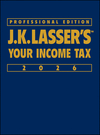Parsonage Allowance Is Constitutional
For nearly 70 years, clergy receiving housing (an in-kind benefit) or a housing allowance (a cash benefit) were able to exclude the full amount from gross income. However, the Freedom From Religion Foundation (FFRF) challenged the housing allowance as a violation of the Establishment Clause of the U.S. Constitution. That clause prohibits the federal government from making any law “respecting an establishment of religion.” It also bars the government from favoring one religion over another or preferring religion over non-religion (or vice versa).
In 2017, a U.S. district court held in favor of FFRF, finding that the statute authorizing the exclusion for a housing allowance had the purpose of providing aid to a group of religious persons in violation of the Establishment Clause (Gaylor v. Mnuchin 278 F.Supp 3d 1081 (W.D. Wis. 2017). The court enjoined the IRS from implementing the exclusion for the housing allowance, but stayed any action pending the outcome of an appeal.
Now we have an outcome; a 3-judge appellate court reversed the district court’s decision (Gaylor v. Mnuchin, CA-7, 3/15/19). The appellate court concluded that the exclusion for a housing allowance limited to members of the clergy (with no specific religious affiliation required) does not violate the Establishment Clause because:
- Code Sec. 107(2), which authorizes the exclusion, serves a secular purpose. It essentially puts clergy on the same footing as nonclergy, who may be able to qualify for an exclusion for their housing under the convenience-of-the employer rule or other provisions.
- The primary purpose of the law is not to endorse or prohibit religion.
- The law does not cause excessive government entanglement with religion.
At this point, it is not clear what FFRF will do. It can request a review by the full appellate court or it may appeal to the U.S. Supreme Court. In the meantime, a member of the clergy can claim the exclusion for a housing allowance.
Separate return
Return filed by a married person who does not file a joint return. Filing separately may save taxes where each spouse has separate deductions, but certain tax benefits require a joint return.



